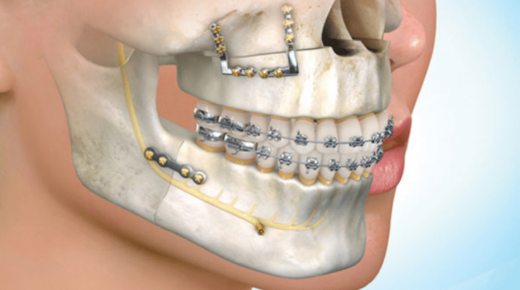Exploring Thesis Topics for Oral and Maxillofacial Surgery
1. Introduction to Thesis Topics
Thesis topics for oral and maxillofacial surgery offer students opportunities to delve into specialized areas of research and contribute to advancements in the field.
2. Importance of Research
Research in oral and maxillofacial surgery addresses clinical challenges, explores novel techniques, and enhances patient care, making thesis topics crucial for academic and professional development.
3. Clinical Relevance
Thesis topics should have clinical relevance, focusing on addressing real-world issues faced by oral and maxillofacial surgeons in daily practice.
4. Interdisciplinary Approach
Encouraging an interdisciplinary approach, thesis topics may intersect with other fields such as dentistry, medicine, oncology, radiology, and biomaterials science.
5. Types of Thesis Topics
Thesis topics in oral and maxillofacial surgery can encompass various domains, including surgical techniques, clinical outcomes, epidemiology, biomaterials, and digital technology.
6. Surgical Techniques
Exploring innovative surgical techniques for procedures such as orthognathic surgery, dental implant placement, bone grafting, and facial reconstruction offers promising thesis topics.
7. Clinical Outcomes
Analyzing clinical outcomes of different treatment modalities, surgical interventions, and patient management strategies provides valuable insights for optimizing patient care and surgical outcomes.
8. Epidemiological Studies
Conducting epidemiological studies on oral and maxillofacial conditions, such as temporomandibular joint disorders, facial trauma, oral cancer, and congenital anomalies, helps in understanding disease prevalence, risk factors, and trends.
9. Biomaterials Research
Investigating the properties, biocompatibility, and efficacy of biomaterials used in oral and maxillofacial surgery, such as bone substitutes, tissue scaffolds, and dental materials, offers promising avenues for thesis research.
10. Digital Technology
Exploring the applications of digital technology, including virtual surgical planning, 3D printing, computer-aided design, and simulation, in oral and maxillofacial surgery presents innovative thesis topics.
11. Regenerative Medicine
Studying regenerative medicine approaches, such as stem cell therapy, growth factors, and tissue engineering, for tissue repair and regeneration in oral and maxillofacial surgery offers potential thesis topics.
12. Patient Safety
Research focusing on patient safety initiatives, surgical complications, risk management strategies, and quality improvement measures in oral and maxillofacial surgery contributes to enhancing patient outcomes and healthcare delivery.
13. Emerging Trends
Investigating emerging trends and advancements in oral and maxillofacial surgery, such as minimally invasive techniques, robotic surgery, and personalized medicine, presents exciting thesis opportunities.
14. Pediatric Oral Surgery
Exploring topics related to pediatric oral and maxillofacial surgery, including congenital abnormalities, cleft lip and palate repair, and dental developmental disorders, addresses unique challenges in treating pediatric patients.
15. Orthognathic Surgery
Thesis topics focusing on orthognathic surgery, including preoperative planning, surgical techniques, stability assessments, and long-term outcomes, contribute to advancements in correcting dentofacial deformities.
16. Temporomandibular Joint Disorders
Researching temporomandibular joint disorders, including diagnosis, conservative management, surgical interventions, and outcomes assessment, offers valuable insights into managing this complex condition.
17. Oral Cancer
Studying topics related to oral cancer, such as risk factors, screening methods, surgical treatment modalities, reconstructive techniques, and outcomes analysis, aids in improving diagnosis and management strategies.
18. Facial Trauma
Investigating facial trauma topics, including injury patterns, surgical approaches, soft tissue management, fracture fixation techniques, and aesthetic outcomes, contributes to optimizing trauma care in oral and maxillofacial surgery.
19. Dental Implantology
Exploring dental implantology topics, including implant design, placement techniques, bone augmentation procedures, implant-supported prosthetics, and long-term success rates, offers valuable insights for improving implant outcomes.
20. Maxillofacial Prosthetics
Researching maxillofacial prosthetics, including facial prostheses, ocular prostheses, intraoral prostheses, and rehabilitation techniques for facial defects, addresses the functional and aesthetic needs of patients.
21. Quality of Life
Studying the impact of oral and maxillofacial conditions and treatments on patients’ quality of life, including psychosocial factors, functional outcomes, and patient-reported outcomes, provides valuable perspectives for holistic patient care.
22. Ethical Considerations
Exploring ethical considerations in oral and maxillofacial surgery, such as informed consent, patient autonomy, professional integrity, and end-of-life care, promotes ethical awareness and responsible conduct in research and practice.
23. Global Health
Investigating topics related to global oral health disparities, access to care, healthcare delivery models, and public health interventions addresses pressing challenges in achieving equitable oral healthcare worldwide.
24. Collaborative Research
Encouraging collaborative research initiatives with other healthcare disciplines, academic institutions, industry partners, and community organizations fosters innovation and knowledge exchange in oral and maxillofacial surgery.
25. Conclusion: Advancing Knowledge and Practice
In conclusion, thesis topics for oral and maxillofacial surgery play a vital role in advancing knowledge, innovation, and practice in the field. By addressing diverse research areas and interdisciplinary challenges, thesis research contributes to improving patient care, surgical outcomes, and healthcare delivery in oral and maxillofacial surgery.

